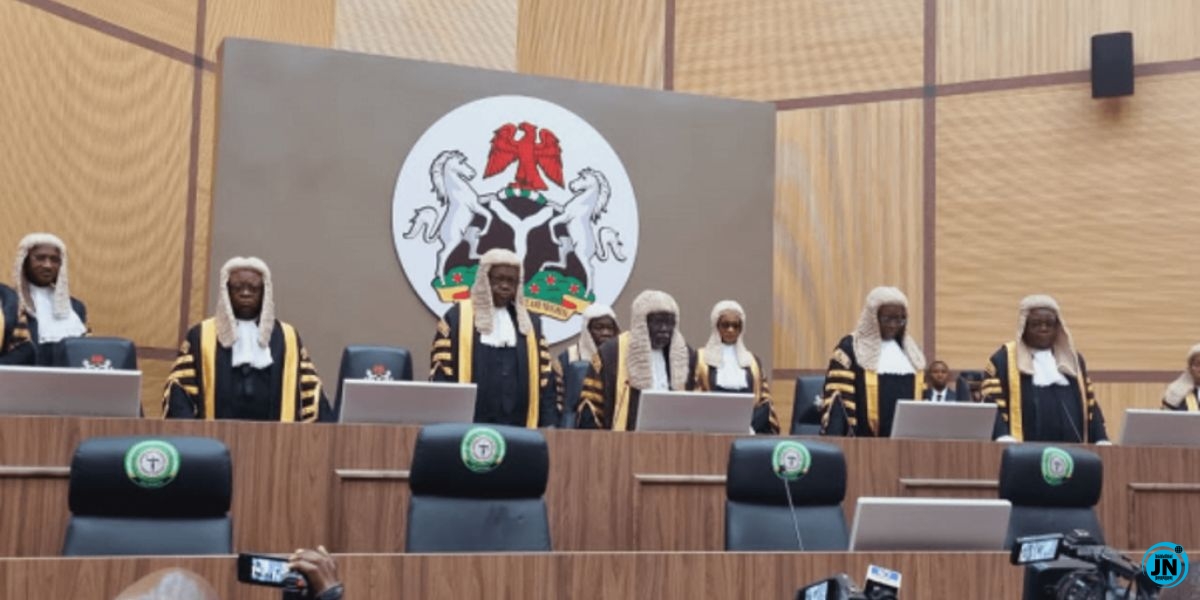
The Indigenous People of Biafra (IPOB) has intensified its legal battle against its designation as a terrorist organization by the Federal Government, taking the case to the Supreme Court after the Court of Appeal, Abuja Division, upheld the proscription order.
In a fresh appeal, IPOB, through its legal team led by Aloy Ejimakor and supported by P.A.N. Ejiofor, Maxwell Opara, Jude Okey Ugwuanyi, Patrick Agazie, Mandela Umegborogu, and Magnus Ikenna Nwangwu, is contesting the appellate court’s ruling, arguing that it violates fundamental constitutional rights, particularly the right to fair hearing.
Key Grounds for IPOB’s Appeal
The group has outlined several legal arguments in its Supreme Court filing, including:
Denial of Fair Hearing (Violation of Section 36 of the 1999 Constitution)IPOB claims that the ex parte order that led to its proscription was granted without giving it an opportunity to be heard, violating the principles of natural justice.
Misapplication of National Security Principles
According to IPOB, the Court of Appeal erred by prioritizing national security concerns over fundamental rights such as freedom of association and expression.
Failure to Satisfy the Legal Definition of Terrorism
IPOB argues that the Federal Government has failed to prove beyond a reasonable doubt that it engages in acts of terrorism, as required under Nigeria’s criminal laws.
Ethnic Discrimination (Violation of Section 42 of the Constitution)
The appeal asserts that IPOB’s proscription specifically targets members of the Igbo ethnic group, which constitutes discrimination based on ethnicity.
Judicial Overreach (Breach of Section 305 of the Constitution)
IPOB contends that the proscription order is equivalent to a declaration of a “state of emergency,” a power exclusively reserved for the President and not the judiciary.
Right to Self-Determination Under International Law
Citing the African Charter on Human and Peoples’ Rights, IPOB maintains that its call for Biafra falls within the framework of international human rights and does not meet the threshold for terrorism.
Unlawful Use of Ex Parte Orders
The appeal challenges the prolonged reliance on an ex parte order to justify its proscription, emphasizing that such rulings must be temporary and subject to full judicial review.
IPOB’s Requests from the Supreme Court
In its legal action, IPOB is seeking the Supreme Court’s intervention to:
Overturn the Court of Appeal’s ruling affirming its proscription.Declare its classification as a terrorist group unconstitutional.
Instruct the Federal Government to reverse its proscription and remove IPOB from the list of banned organizations.
The Attorney General of the Federation (AGF) has been listed as the respondent in the case. IPOB argues that the Federal Government’s legal basis for its proscription is fundamentally flawed and should be overturned in the interest of justice and democratic governance.
At the time of this report, the Supreme Court has yet to announce
a date for the hearing of the appeal.

